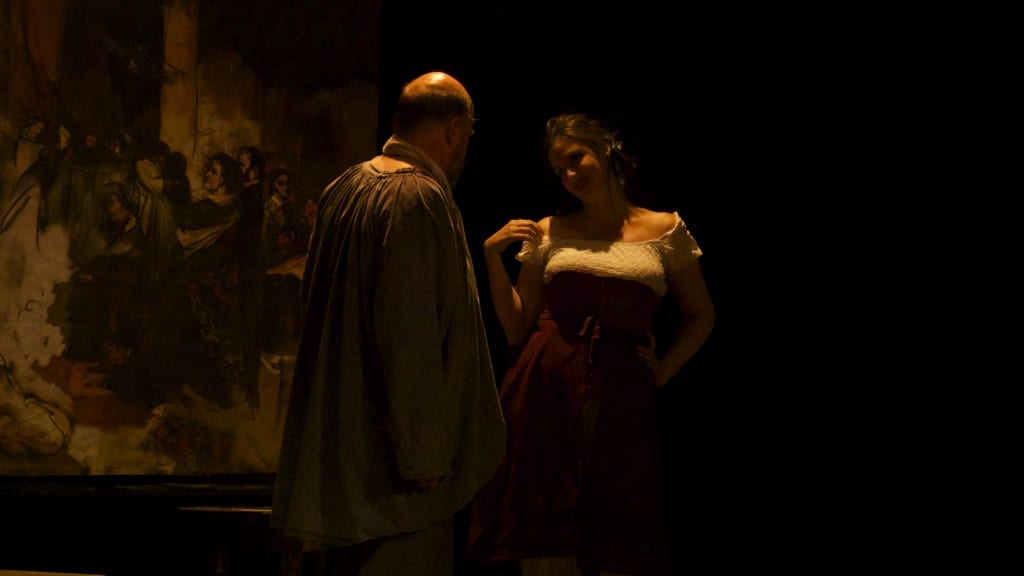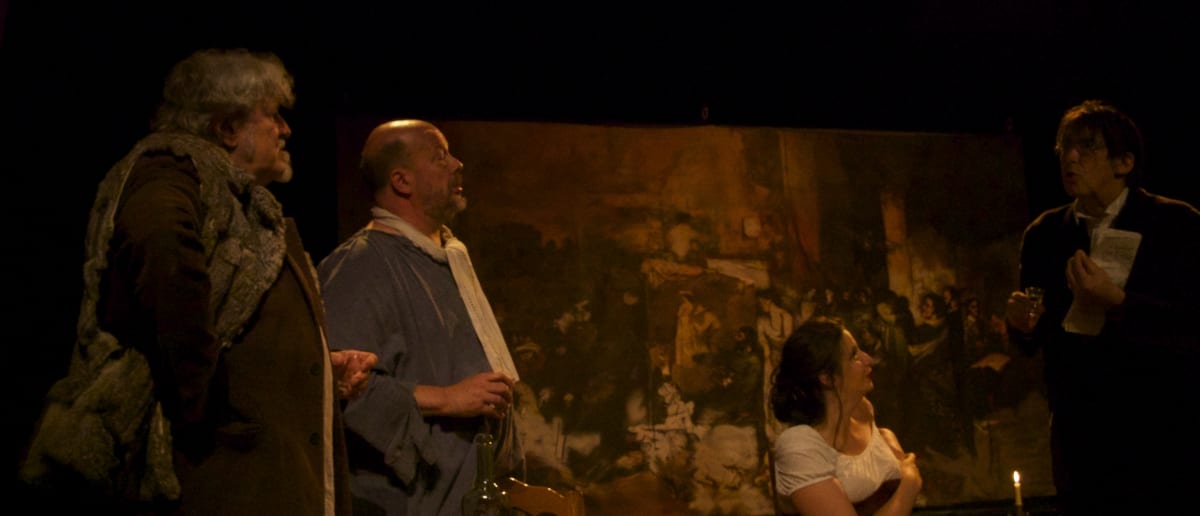When you enter in the performance hall, what strikes you first is the huge unfinished painting in the centre of the stage.
In 1855, Gustave Courbet works on The Painter’s Studio (a real allegory summing up seven years of my artistic and moral life) to present it to the Exposition universelle. He is in the company of his model and mistress Jenny when Pierre-Joseph Proudhon visits him. The painter tries to convince the intellectual to write a booklet about his pictures. This is followed by several debates opposing Courbet, the pretentious and pleasure seeker artist, Proudhon, the misogynist political philosopher, Jenny, the sensual and feminist model before the time, but also Georges, the conservative poacher.
Proudhon and Courbet are brilliantly interpreted by Jean Pétrement and Alain Leclerc, who succeed in rendering more human approaches to those two great figures of the 19th century. All of the characters are well defined, but some of them seem to be reduced to their function and to have no psychological depth. It is a shame for a staging which takes the bias of realism. I especially think to the role of Jenny that I considered a bit artificial. She seems to be here just to take the opposite view of Proudhon’s arguments and to avoid spectators being beguiled by those. More than that, at the beginning, all her “feminist” speech seems pronounced to provoke and seduce the austere philosopher. Of course, it may be closely linked to the feminine condition of the times, and certainly to the personality of the real young woman. But as the author chose to introduce “feminist” arguments, I was then expecting strongest and less caricaturist ones, especially for a play which questions still-current issues.

Fortunately, Proudhon modèle… Courbet evokes other captivating questions, such as artistic creation, moral values, relations between the artist and the official power, mutualism, anarchism, and political commitment in general…that is to say, many issues still alive today.
Summary in French:
Sur la scène du Théâtre des corps saints, la compagnie Bacchus met en scène la relation amicale et souvent conflictuelle qu’entretenaient Proudhon et Courbet. Alors que le peintre travaille sur son dernier tableau dans l’espoir de le présenter à l’Exposition universelle, son ami le philosophe lui rend visite. S’en suivent de nombreux débats sur l’art, ses rapports avec le pouvoir officiel, sur l’engagement politique, mais aussi sur la condition féminine, introduits par Jenny, la muse et maîtresse de Courbet. On regrette le rôle trop secondaire et caricatural de cette jeune femme sensuelle, bien qu’il soit fortement lié au contexte de l’époque. Jean Pétrement et Alain Leclerc n’en restent pas moins brillants dans leurs interprétations de ces deux grandes figures du XIXème siècle.

